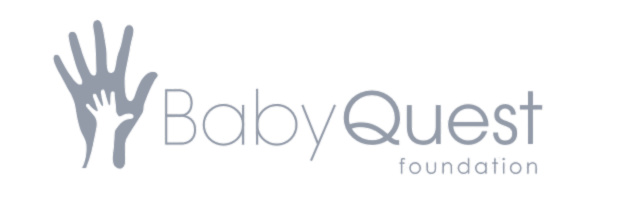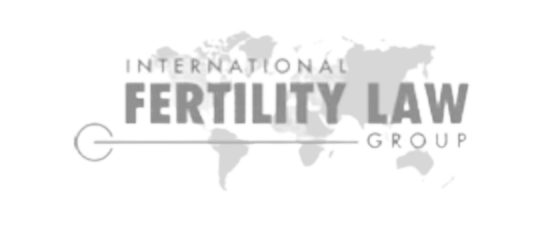resources
Egg Donor FAQs
To become an egg donor, you must be between 21 and 32 years old, in good physical and mental health, have a healthy BMI, and be a non-smoker with no major genetic or hereditary conditions. Donors should also have a strong academic or professional background and be fully committed to the process. At TLC, all candidates go through a thorough medical, genetic, and psychological screening to ensure eligibility.
The egg donation process starts with an application and screening, followed by evaluations with medical and psychological professionals. Once approved, you’ll be matched with intended parents. You’ll take fertility medications for about two weeks before undergoing a short, outpatient egg retrieval. Most donors resume normal activity shortly after.
See the full egg donation process here or on our donor page.
Egg donation is generally well-tolerated. Most donors experience mild side effects like bloating or mood changes. The egg retrieval is a quick, minimally invasive procedure done under light sedation, with little or no pain. Serious complications are rare, and TLC provides comprehensive medical care throughout the process.
Egg donor compensation typically starts at $15,000 for first-time donors and may increase based on location, donor experience, and specific traits requested by intended parents. Compensation also covers time, travel, and the commitment involved.
No, donating eggs does not impact your future fertility. Each month, your body naturally discards multiple eggs. Fertility medications help mature more of them for retrieval without reducing your long-term egg supply. Research shows no long-term effects on fertility.
Read more about egg donation and fertility here or how egg donation helps you understand your fertility in this article.
TLC matches donors with intended parents based on detailed preferences—such as physical characteristics, academic background, interests, and medical history. Our team facilitates a match that feels right for both sides, with transparency and care throughout.
Learn more about considerations of intended parents in selecting their ideal donor candidate.
TLC offers both anonymous and known egg donation options. Some donors and intended parents prefer to stay anonymous, while others may agree to future contact through open or semi-open arrangements. The level of contact depends on mutual preference.
The American Society for Reproductive Medicine (ASRM) recommends that egg donors complete no more than six donation cycles. This limit helps protect your health while allowing you to help multiple families.
TLC provides full support for egg donors, including medical guidance, emotional counseling, legal coordination, and help with travel and scheduling. Our team is with you every step of the way to ensure you feel informed and cared for.
The entire egg donation process—from application to retrieval—usually takes between 3 to 6 months. Timing depends on your screening results, match availability, and cycle coordination.
A common cycle consists of 7-10 appointments. The majority of these are monitoring appointments once you have started injections.
Typically, you will have 2 trips in a donation cycle. The first is the medical screening trip (less than 24 hours) and the second is for your egg retrieval. The retrieval trip typically lasts 5-6 days, depending on your cycle calendar, and we will cover the cost of bringing a companion of your choice on the trip.
Egg donation payments can be a financial benefit, but many donors aren’t sure how to handle them during tax season. While TLC does not issue 1099s or report donor income, it’s important to understand your options and talk with a tax professional about what’s right for your situation. Here’s what every egg donor should know about taxes and compensation.
Read more about taxes and egg donor compensation in this article.
resources
Intended Parent FAQs
TLC uses a rigorous screening process before adding any donor to our egg donor database. This includes an application, education verification, and a personal interview. Donors must also pass clinic-administered medical exams, psychological evaluations, and genetic testing. Only candidates who meet the highest standards are approved.
Learn more about our donor vetting process here and on our donor page.
When selecting an egg donor, you can consider physical traits, ethnicity, academic background, personality, medical history, and personal interests. Our team will help you navigate the egg donor database and guide you toward a donor profile that aligns with your family-building goals.
The egg donor matching process begins with a consultation to understand your preferences. We then share donor profiles from our database that meet your criteria. Once you choose a donor, she must complete final medical and psychological clearance before starting the cycle.
The cost of using an egg donor includes donor compensation, agency coordination, legal services, and medical procedures. TLC provides a transparent cost breakdown and helps you plan every step.
Read more about compensation and donor matching here.
Yes. You can use a known donor—such as a friend or relative—or choose a donor from our egg donor database. TLC supports both anonymous and known donation options, depending on your preferences.
Using an egg donor requires a legal agreement that defines parental rights, responsibilities, and terms of contact. TLC connects you with experienced reproductive attorneys to ensure all legal aspects of egg donation are properly handled.
Read more about the process, including legal contracts, in this article.
TLC offers personalized support throughout the egg donor journey, including donor selection, medical coordination, legal referrals, and emotional guidance. We’re here to help you navigate every step with confidence.
Finding the right egg donor typically takes a few weeks to a few months. The timeline depends on how specific your donor criteria are and current availability within our egg donor database.
If an egg donation cycle doesn’t result in pregnancy, TLC will help you explore next steps—such as selecting another donor, using frozen eggs or embryos, or adjusting your treatment plan with your clinic.
Yes. All donors in our egg donor database complete extensive medical and genetic screening. This ensures they are healthy and reduces the risk of inheritable conditions, helping improve outcomes for intended parents.
Learn more about how we screen egg donors here and on our donor page.
INFERTILITY RESOURCES
Why Choose TLC?
We work with a strong community in the infertility industry. Below are companies we work with regularly:












